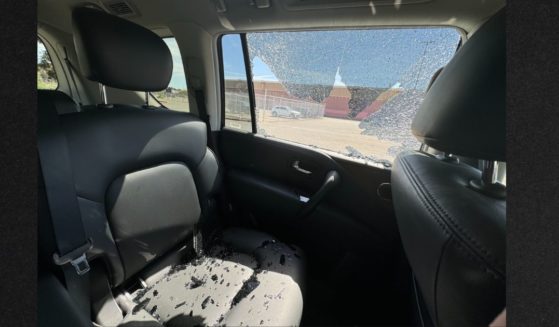Key Gunpowder Factory Mysteriously Exploded, US Production of the Chemical Now Totally Offline
A mysterious explosion at a gunpowder factory in Louisiana in 2021 that destroyed the facilities highlights a serious problem in America’s military supply chain that makes us all less safe in the face of growing threats from China and our other enemies.
As the Wall Street Journal pointed out on Wednesday, “Fewer weapons manufacturers, shortages and ‘single source’ contractors limit the Pentagon’s ability to ramp up production—including when the sole maker of a crucial type of gunpowder stopped producing.”
The explosion occurred two years ago at a gunpowder plant in Minden, Louisiana, when what the paper called “an errant spark” destroyed the entire facility in a plant that the Department of Defense relies on to produce bullets, mortar shells, artillery rounds and Tomahawk missiles.
The company made black powder.
While the explosive is a very old form of munitions — used during the Revolutionary and Civil Wars — it also has uses in modern military applications. It also can’t be replaced by other substances for these applications.
Exacerbating matters? The Louisiana factory was the only such maker in North America.
Even though the explosion that destroyed the facility occurred two years ago, the plant is still off line and is not producing the vital substance and has been unable to deliver the much-needed supplies to the Pentagon.
The fact that there is no back-up to supply the chemical to our military is a problem that has been growing for years as the U.S. military supply chain has contracted to a smaller and smaller number of manufacturers.
“Military suppliers consolidated at the Cold War’s end, under pressure to reduce defense costs and streamline the nation’s industrial base,” the Journal reported. “Over the past three decades, the number of fixed wing aircraft suppliers in the U.S. has declined from eight to three. During the same period, major surface ship producers fell from eight to two, and today, only three American companies supply over 90% of the Pentagon’s missile stockpile.”
“Lower-tier defense firms are often the sole maker of vital parts — such as black powder — and a single crisis can bring production to a standstill,” the Journal warned.
A lone crisis is just what happened with the black powder mill in Louisiana.
It all highlights a major problem America has in regard to its military readiness. America’s issues with military readiness is only being compounded as Joe Biden continues to send so much of the country’s munitions and supplies to Ukraine for that nation to put up its opposition to Russian invaders.
As it happens, the surplus stocks that should be used to keep America safe are dwindling and the country’s capacity to manufacture more is not something that can quickly or easily be replaced.
One shudders to think what would happen if America had to ramp up in an emergency for a major war.
Of course, it isn’t just a lack of factories. It is also a lack of skilled labor to make the factories run.
“Chokepoints are one of a number of weaknesses in the U.S. military’s supply chains. Others include a lack of skilled workers in casting and forging, shortages of infrastructure for battery technology and periodic shortages of advanced microchips,” the Journal added.
This also means that many of the country’s supplies are being bought from foreign manufacturers and putting the U.S. at the mercy of foreigners.
The paper ruefully notes that the U.S. military is “increasingly reliant on a smaller number of contractors for these critical capabilities,” according to Halimah Najieb-Locke, deputy assistant secretary of defense in charge of the industrial base, at a recent seminar.
“That impacts everybody’s ability to ramp production,” Najieb-Locke added.
This isn’t a new problem, of course. It all started in the 1990s when Bill Clinton’s Secretary of Defense Les Aspin began disassembling the supply chain to save money and to get firmer control over the manufacturers. The first series of consolidations saw the industry go from dozens of big contractors to only five. Since then, it has continued to contract. As the Journal points out, the defense industry shrunk from 69,000 smaller contractors in 2016 to only 55,000 by 2021.
It all amounts to a serious problem for the country’s national security.
Much to the chagrin of Americans, Joe Biden and his regime, as they typically do, are not working to fix the problem. Instead, the administration’s dereliction of duty is only making matters worse.
Truth and Accuracy
We are committed to truth and accuracy in all of our journalism. Read our editorial standards.












